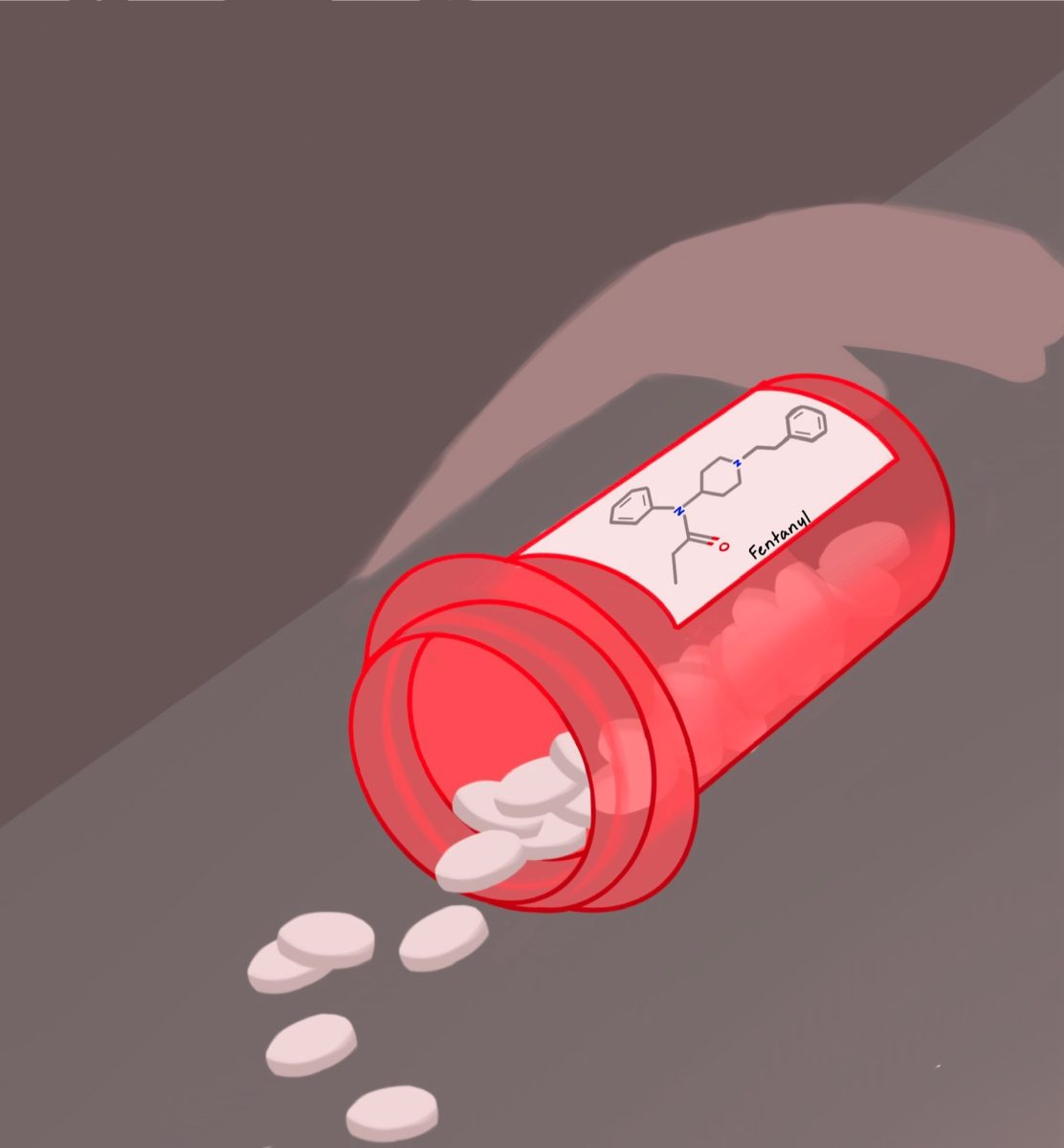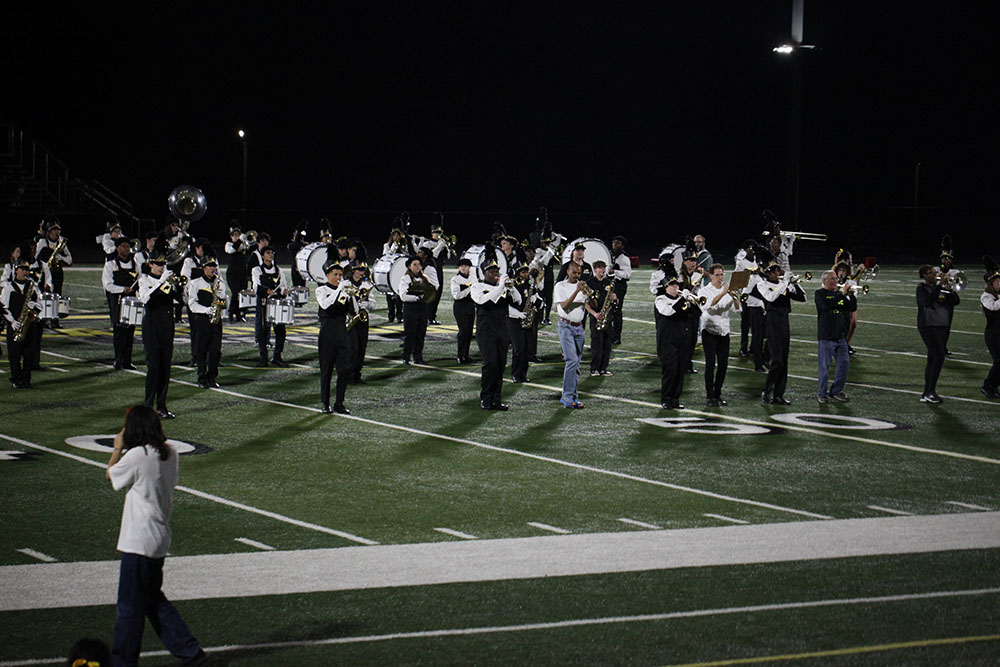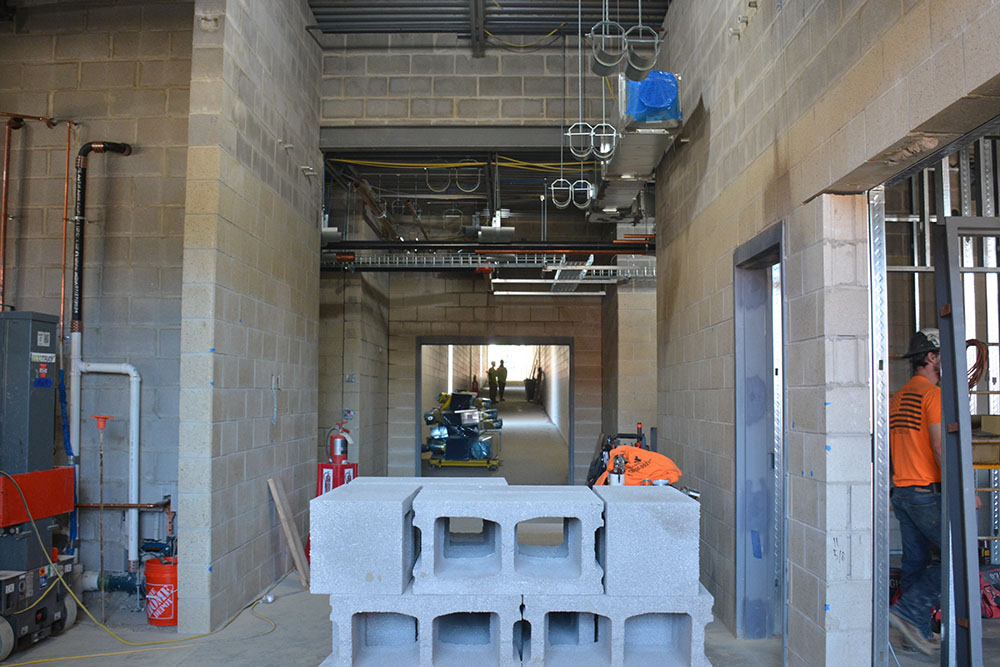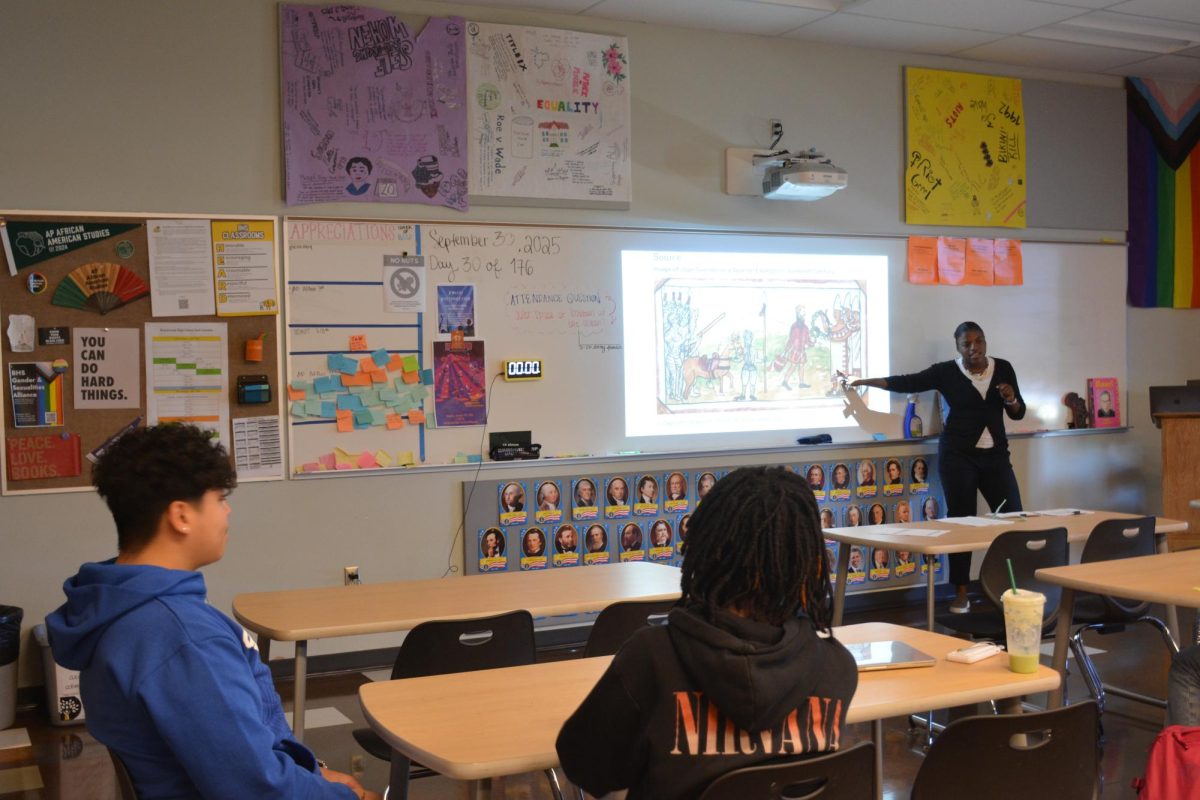The class of 2017 is entering high school this fall. This is not an easy task for anyone, especially with the high expectations and pressure that come from the change.
Freshman Anabelle Cheistwer feels that classes are harder in high school.
“The teachers teach differently,” she said. “It’s more of a lecture style here.”
For Cheistwer, the best part of high school is lunch.
According to educational researcher Ruth Curran Neild, Commissioner of the National Center for Education Evaluation and Regional Assistance, 9th grade marks the beginning of the high school experience, as well as a new set of expectations. Failure to meet these expectations can lead to a student getting off-track and missing the required credits he or she needs to graduate high school. This can hurt a student’s education not only in 9th grade, but also in the three years that follow.
Curran Neild suggests that students who get behind in 9th grade could face serious long-term consequences.
“Students who manage the academic demands of the transition to high school have a high probability of graduating four years later,” she wrote, “but those who do not … face a substantially elevated risk of dropping out of high school.”
Ben Sternberg, also a freshman, says his parents have raised the academic stakes now that he is in high school.
“My parents are more serious about the improvement of my grades every semester now that it really counts in high school,” Sternberg said.
Sternberg believes teachers aren’t cutting as much slack as they did in middle school.
Junior Eitan Meskin advises freshmen to take personal initiative.
“I think the most significant differences are your freedom and responsibility,” he said. “If you aren’t doing well in a class, your teacher won’t call your parents. You have to deal with it on your own.”
“Not going in for extra help in a class if you’re not understanding things is the biggest mistake freshmen make,” Meskin said.
“Freshmen assume that they can do the same level of work they did in 8th grade and get the same results, and it doesn’t work,” English teacher Casey Matthews said.
She also advises each 9th grader to figure out what makes him or her successful and act on it. “Go talk to your teachers,” Matthews said. “Don’t be afraid.”
According to guidance counselor Ashley Saferight, the biggest mistake that students make is not doing their homework.
“Zeroes bring down your grade faster than anything else,” Saferight said.
“In high school you are more responsible for your own academics,” she said. “A lot of 9th graders have a hard time becoming more responsible for their own work.”
According to Curran Neild’s 2003 study of 9th graders in the Chicago Public School District, students who got off track in the 9th grade had a 22% rate of graduating on time, compared to those who were on track, who had an 81% graduation rate.
“The organization and climate of high schools are not the primary culprits for 9th grade difficulty,” Neild wrote. “Rather, the problem lies with students’ weak preparation for high-school work or misconceptions of the diligence required to earn a high school diploma, or both.”
“The biggest thing is, if you start struggling, ask for help…don’t drown quietly,” Saferight said.















